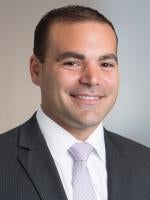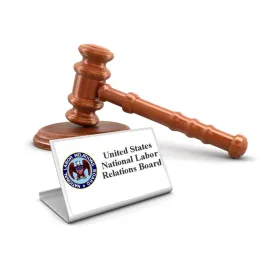On March 31, 2021, the NLRB’s Acting General Counsel Peter Ohr issued a Memorandum entitled “Effectuation of the National Labor Relations Act through Vigorous Enforcement of Mutual Aid or Protection and Inherently Concerted Doctrines” to all Regional Directors. While the Memorandum does not change NLRB precedent in any respect, it is a preview of the Office of the General Counsel’s enforcement and litigation strategy, which could lead to changes in the law over the next several months and years.
At its core, the Memorandum articulated the Acting General Counsel’s desire to aggressively enforce employees’ Section 7 rights to engage in “mutual aid or protection” and “inherently concerted” activities well-beyond conduct that is a precursor to a union campaign, by extending such conduct to employees’ political and social justice advocacy, which is a trending topic in nearly all workplaces today.
The health and safety concerns underlying the COVID-19 pandemic and the percolating social justice movements over the last year have created a confluence of circumstances resulting in increased employee interest in advocating for “hot button” social issues in the workplace. This dynamic has been on full display by union leaders seeking to organize new members around more social issues. This is exemplified by graduate students seeking to organize and form unions, while at the same time, advocating for social justice concerns on campus.
“Mutual Aid or Protection in Today’s Landscape”
Ohr advocated for an expansive view of “mutual aid or protection” in line with speech that is commonplace in the workplace regarding the social issues of today. Importantly, however, Ohr recognized that such conduct becomes protected by Section 7 of the Act when it “has a direct nexus to employees’ interests as employees.”
Ohr cited examples of when employee conduct gains protection of the Act, which is instructive: for instance, public commenting, advocating for and engaging in work stoppages in support of an increase of the minimum wage – a legislative issue – would be protected by the Act when voiced by employees who earn around minimum wage. Similarly, employees who work with or are undocumented immigrants who protest in response to a sudden crackdown on undocumented immigrants, may also be protected.
Ohr promised to “robustly enforc[e] the Act’s provisions” in this area, while commenting on the Board’s recent decisions that applied “mutual aid or protection” narrowly. While Ohr may disagree with the Board’s 2019 decisions in Alstate Maintenance, 367 NLRB No. 68 (2019) and Quicken Loans, 367 NLRB No. 112 (2019), Ohr did not go so far as to criticize the Majority’s holdings in those cases. Instead, Ohr noted where those decisions “left avenues for demonstrating mutual aid or protection that should be fully utilized.” Ohr provides a playbook to employees and unions regarding how to gain protection of the Act: ensure that workplace objections or protests can be tied to the employees’ interests in the workplace as employees.
For instance, the Board in Alstate Maintenance (which we discussed here) held that the employee’s comment to his supervisor that he did not want to perform a job because the customers did not tip was deemed unprotected activity. However, the Board noted that the comment would have been protected if it were aimed at changing employer policies or practices. Similarly, in Quicken Loans, the Board concluded that an employee’s comment about not wanting to handle a customer complaint because it was a “waste of time” was not protected because it was not aimed at changing worker policies.
“Finding Certain Conduct to be Inherently Concerted”
Ohr also discussed his desire to adopt a broad definition of what constitutes “inherently concerted” activity in terms of workplace speech. Of course, in order to obtain Section 7 protection under the Act, the activity must be “concerted” (in addition to being protected). To be concerted, the conduct could involve only a speaker and a listener (as opposed to multiple individuals speaking together). In addition, Ohr noted that contemplation of group action is not a required element.
Ohr indicated that the General Counsel’s Office likely would seek a broad application of what constitutes “inherently concerted” activity. Specifically, the Acting General Counsel may seek to safeguard employee rights to engage in speech related to workplace health and safety issues and racial discrimination, which have not yet been endorsed by the Board – in addition to the categories of speech that have been traditionally protected, such as wages, job security and hours of employment.
* * *
It certainly bears watching how the Acting General Counsel intends to “vigorously” enforce employees’ Section 7 rights pursuant to this Memorandum, and whether the law will change in any respect. Stay tuned!





 />i
/>i

